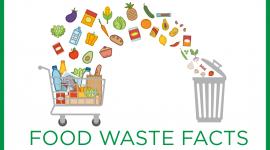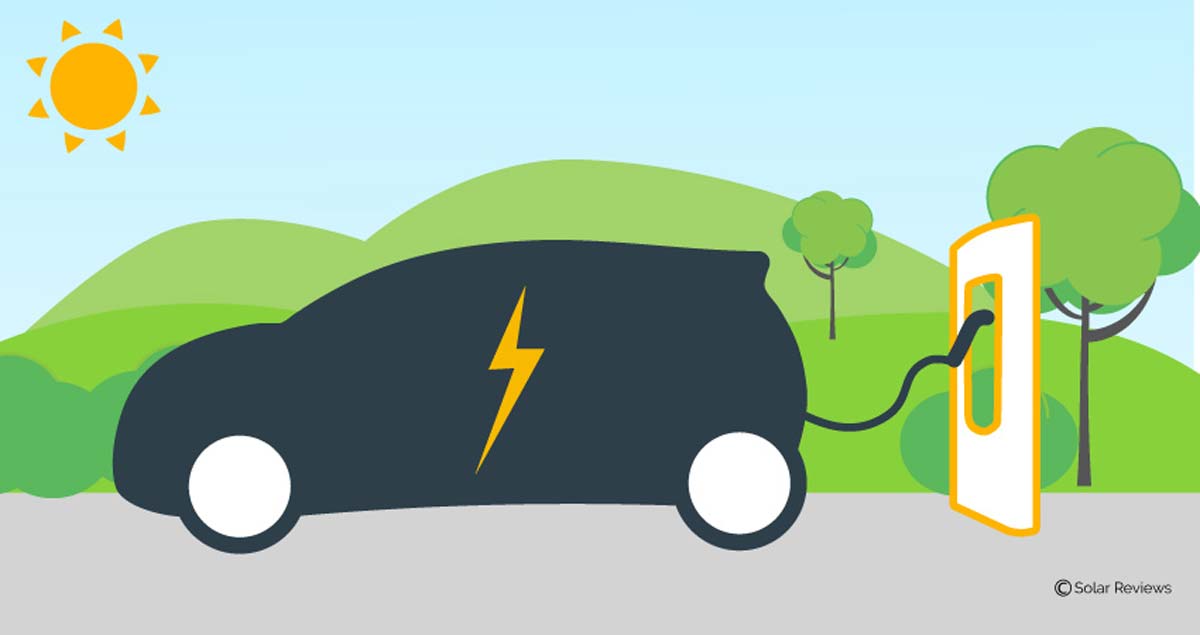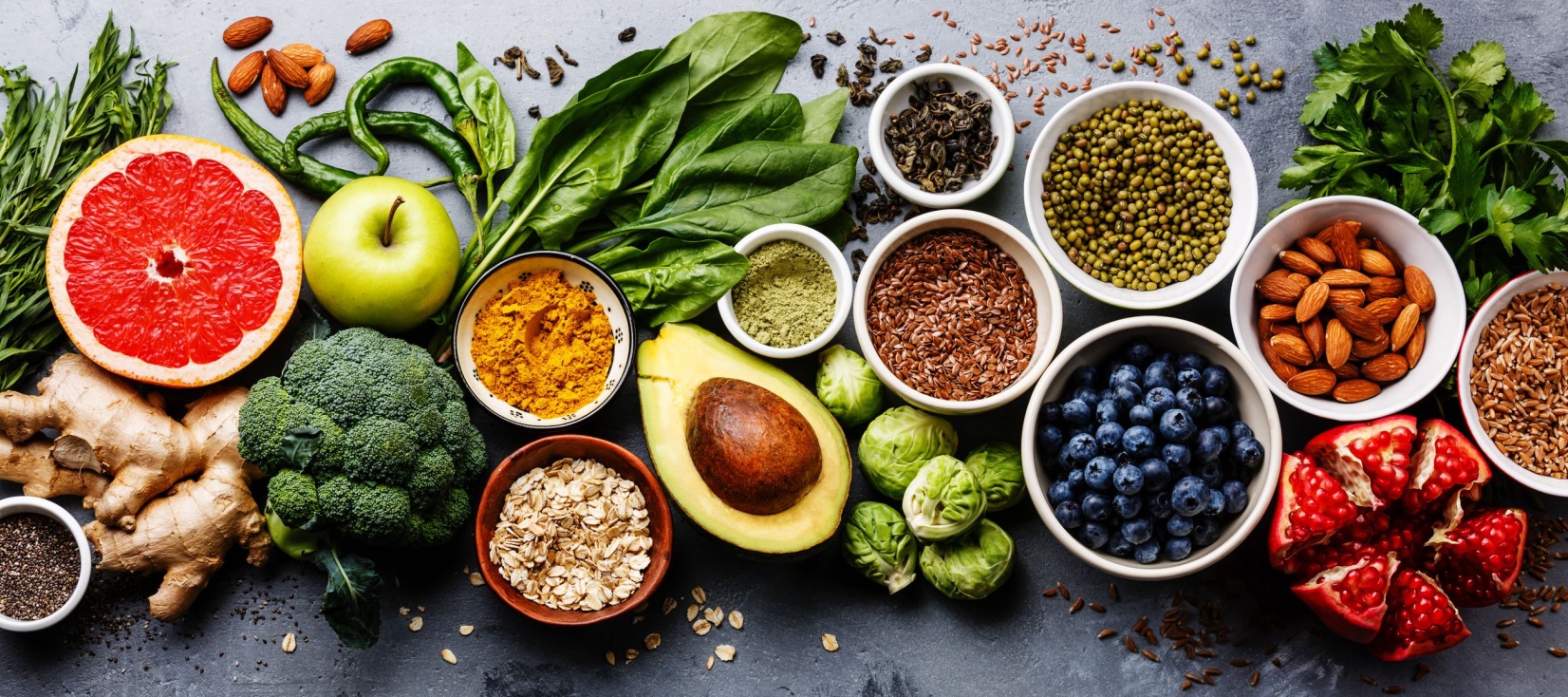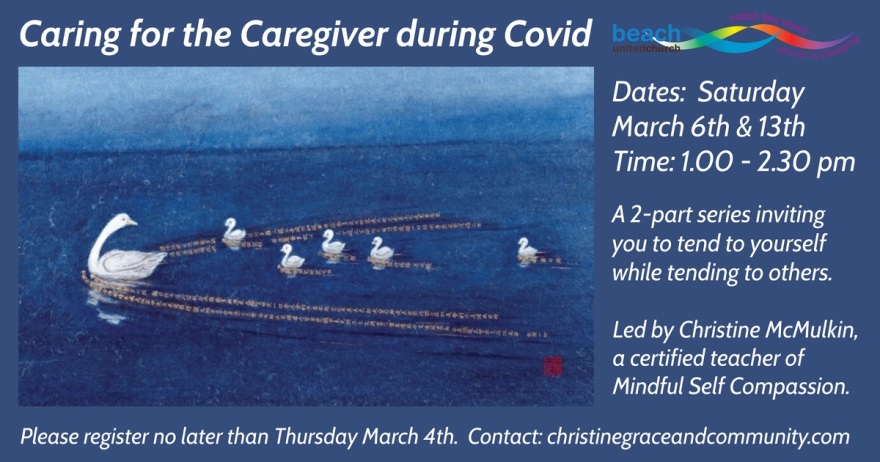According to a recent U.N. report, that’s how much food the average Canadian wastes at home in a year. And this doesn’t include edible food that gets thrown out by farmers, producers, suppliers, grocery stores and restaurants.
At Beach United, community meals and green initiatives are a vital part of our ministry. When we know good food is being lost or wasted, we want to do something about it.
Food waste was the subject of the documentary, Just Eat It, that we discussed in our “Watch, Discuss, Act” series in February. And our Environmental Action Group is looking for ways to connect with other community groups that want to save food that would otherwise be discarded.
The environmental impact of food waste:
When food is wasted, it means that everything involved in producing it ‒ such as fertilizers and animal feed, water, packaging materials, and the fuel for harvesting and shipping ‒ is wasted too.
Food that ends up in landfill creates methane gas, which is 25 times more damaging to the environment that carbon dioxide.
Reducing food waste is an important step to reducing carbon emissions and addressing the climate crisis.
Food waste reduction requires action at every link of the supply chain, from policies and regulations for food producers and distributors, to individual steps taken by consumers.
Here are ways we can make a difference in our own kitchens:
Plan ahead. When you know what you need to cook, you can use food more efficiently.
Use up what you have. Check your fridge, pantry & freezer before you shop. Don’t let leftovers linger! And if you have perishable foods (vegetables, fruit, bread, dairy etc.), eat them (or freeze/preserve them) before they spoil.
Understand what “best before” means. “Best before” dates on food products are different from “expired” dates. The best-before date refers to quality, not safety. It’s safe to buy and eat foods after their best-before date (but store them properly to avoid spoilage). Do not eat foods after their expiry dates. Learn more about best-before dates here.
Buy what you need. Make a grocery list and only purchase what you know you can use. This will help you avoid wasting food while saving money too.
Cook creatively. Try recipes for soups, smoothies and casseroles to use up leftovers and perishable foods. Here are some helpful resources:
* Save With Jamie cookbook by Jamie Oliver (and you can watch the Save With Jamie TV series on CBC Gem)
* Zero-Waste Chef blog by Anne-Marie Bonneau
* Love Food Hate Waste recipe finder: type in an ingredient to see what you can make with it
If you have too much food, share it! Donate non-perishable items to food banks and neighbourhood food cupboards. Drop off casseroles and baked goods to family, friends and neighbours. If you have too many vegetables or fruit from your garden, put them out in a box for people to help themselves.
Here are some ways that unsold food is being distributed to people who need it:
Not Far From The Tree connects volunteer pickers with people in Toronto who have fruit trees on their property. A portion of each harvest is donated to community organizations.
Second Harvest redistributes unsold food to school programs, seniors’ centres, shelters and food banks. It has an app called FoodWaste.ca that links businesses with food surpluses to charities.
Learn More:
“People waste more food than thought, UN finds” – CBC News
Just Eat It: a documentary about food waste
You can watch it on the Knowledge Network website.
“Waste Not, Heat Not: Fighting The Climate Crisis From Your Kitchen” by Toronto writer Jen Knoch
“Food and Climate Change” by the David Suzuki Foundation
“How To Stop Food Waste: A Comprehensive Guide” by Greenpeace Canada




